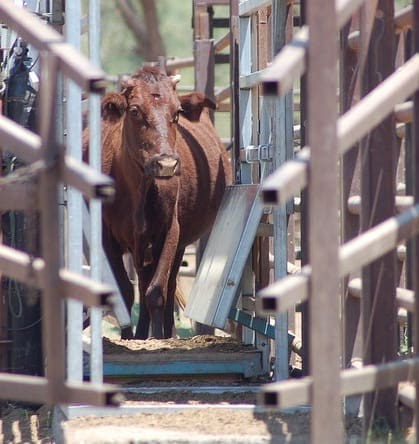DESPITE water being a fundamental of cattle production, research has revealed a significant gap in scientific knowledge about how water impacts animal behaviour and physiological needs.
In a research paper to be published soon, CQUniversity postgraduate Lauren Williams identified published data from just 28 experiments focused on watering frequency and cattle performance, of which just 12 were focussed on the impact on beef production.

Remote monitoring systems will be used to gain a picture of watering habits among cattle in extensive production systems
The earlier beef research dated back to the 1930s and included just one experiment conducted in Australia.
“It was quite startling to realise that we actually don’t know what’s driving the behaviour of cattle around their watering habits, such as the frequency of drinking, the volumes consumed, how that influences their feed intake and growth, or reproductive performance,” Ms Williams said.
Ms Williams presented her findings the recent Northern Beef Research Update Conference in Rockhampton, which brought together producers and the industry’s research community.
“There was a lot of positive feedback from the industry about the need for further research into this fundamental area of livestock production, especially when compared to the plethora of information currently available about grazing behaviour and nutritional needs,” she said.
All studies identified by her research were controlled trials, with none conducted under free grazing systems where voluntary drinking behaviours were measured or monitored.
“The historical evidence showed that drinking frequency can affect performance and has the potential to impact upon growth rates and reproductive performance in open grazing systems,” she said.
Cattle have a tendency to concentrate their grazing around water points, preferentially grazing pastures up to 3km away. But when forage around water points is sparse cattle will travel further from water in search of forage, sometimes resulting in them travelling to drink only every second or third day.
The scientific literature revealed that beef cattle drink 15-25pc less water and consume 9-16pc less feed when accessing water only once every second and/or third day, when compared to controls (once-daily access).
The review highlighted a number of important gaps in the literature where future work is required to better understand the optimum drinking frequency of cattle and implications of water availability on health, welfare and performance.
Ms Williams’s next phase of research will use precision sensor technology to track the behaviour of individual animals in open grazing systems as they enter watering points via walk-over-weighing and drink from troughs equipped with water telemetry systems. This will provide data on the frequency of drinking events, the volumes consumed, and the relationship these may have on performance.
She said that in the long-term the research had the potential to provide producers recommendations around the optimal placement of water points in open grazing systems, and how water quality may influence performance.
Ms Williams is in the final year of her PhD, with her research being supervised by the head of CQUniversity’s Precision Livestock Management team, Professor Dave Swain, and CSIRO’s Dr Greg Bishop-Hurley.
Source: CQU
